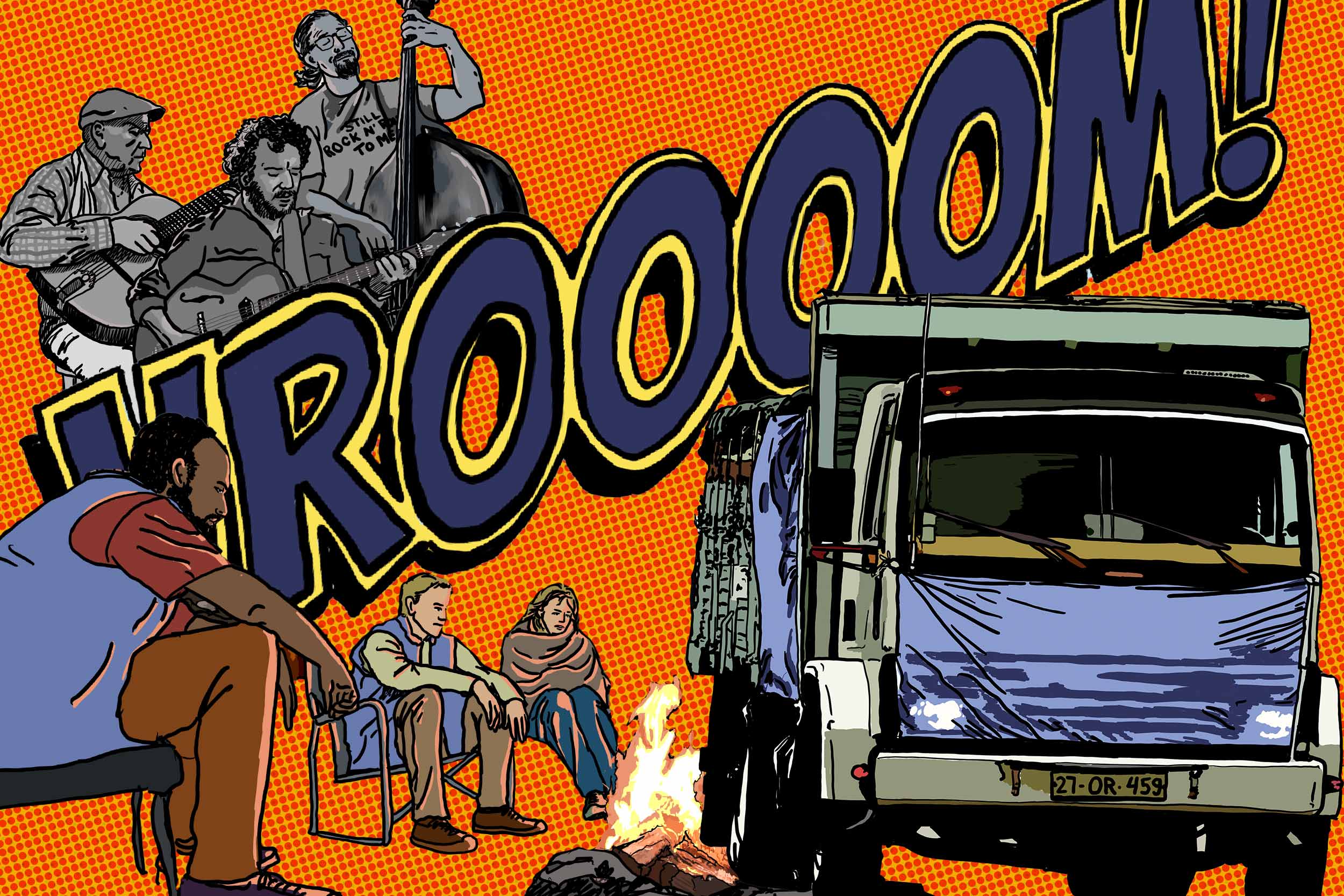The scenes are apocalyptic.
In one, a truck speeds through a ravaged city to deliver much-needed supplies. In another, a wildfire tears through a forest.
The fictional images are from University of Virginia psychology professor Jim Coan’s comic, “Our Social Baseline,” published in the Virginia Quarterly Review. Although they may not depict our present, they represent an increasingly likely future. Just last summer, wildfires burned through more than 45.7 million acres of Canadian forest. The smoke from the fires spread throughout the United States, causing a haze to descend on cities including Charlottesville.
But the future need not be all doom and gloom. As Coan’s comic demonstrates, we have each other to get through catastrophes.










